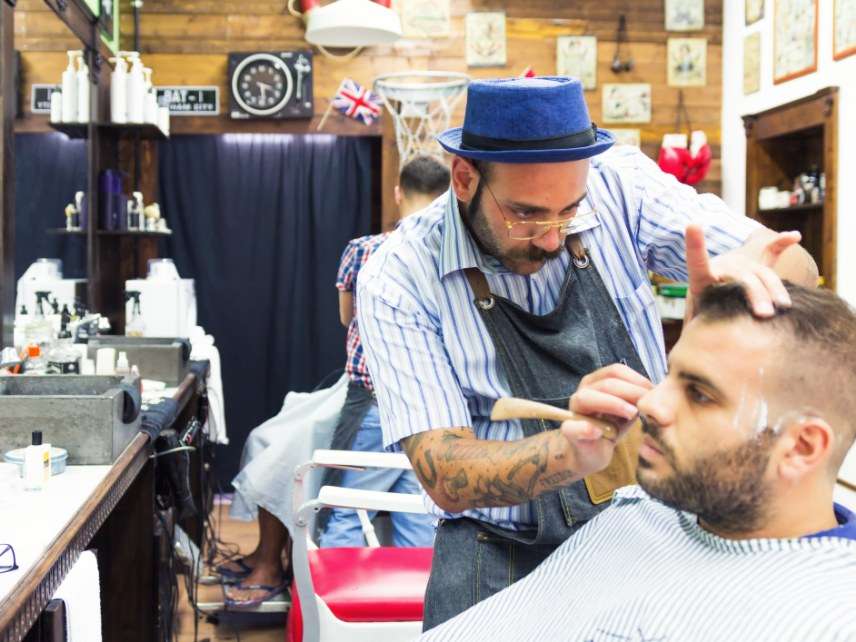California's Attacks on the Gig Economy End Up Hurting Neighborhood Barbers, Tattoo Artists
A state supreme court ruling jeopardizes the very idea of independent contractors in several trades.

Want a job where you determine your own hours, set your own prices, and build your own personal brand? Stay away from California.
A California Supreme Court decision has redefined what constitutes a private contractor—a person who provides his or her services as an independent worker, not as an employee—and it looks like it is going to wreck people's lives.
Certain work in the service sector—hair stylists, tattoo artists, taxi and limo drivers—are filled with people who are contractors, not workers paid by the hour. They are able to set their own hours and determine the terms that they work with the business owners. This reduces overhead costs on the business owner, who then doesn't have provide additional benefits.
But the impact of a court case ruled on back in April is now throwing that relationship in disarray. The canary in the coal mine is Bottle & Barlow's, a combination barber shop and bar. Last week, all the barbers quit (seven of them), leaving the owner in a bit of a bind.
The state's Supreme Court in Dynamex v. Superior Court of Los Angeles County ruled that a company had improperly reclassified its drivers from employees to contractors. In this decision, it establishes some completely new parameters determining whether somebody is to be considered an independent contractor. The most important—and potentially damaging—is that an independent contractor's work must "fall outside the usual course" of what the business does. Put differently, the contractor cannot be involved in the same work as the company.
This means that businesses like barber shops and tattoo parlors must fully employ those who cut hair or provide tattoos. Yet in many cases, neither party wants that. As the Sacramento Bee notes, it was the barbers who decided to quit Bottle & Barlow's rather than become wage-slaves:
Many hairstylists get into the trade for its flexible hours and opportunity for entrepreneurship, leaving the prospect of being an employee with set work times and withheld taxes unappealing, [owner Anthony] Giannotti said. On his end, it means paying workers upwards of $30 and hour in the next 2 to 4 years.
"They have really gutted us," he said. "You can't hire and structure things the way (barbershops) have for decades. They've just destroyed the pay structure for the barber and cosmetology industry."
CBS' Sacramento affiliate includes an owner of a tattoo parlor in its story, wondering what on earth she's going to pay them and how the shop would survive.
The state court's decision is clearly based on the assumption that the contractors are dealing with big corporations, and it does not seem terribly concerned about the tiny margins by which many in the service sector survive. And as a couple of labor attorneys with firm Fisher Phillips note bluntly, when these new rules determine who is allowed to be classified as an independent contractor, "Conspicuously absent from the test is worker preference."
Labor unions have supported the ruling and the new classifications, which clearly are intended to screw over the "gig economy." That it affects barbers and tattoo artists in addition to the Uber drivers they loathe is a reminder that this whole concept of a "gig economy" is not actually a new trend. Far from being a way for big corporations to screw over the proletariat, these contracts make it easier for working-class people to work on their own terms.


Show Comments (69)